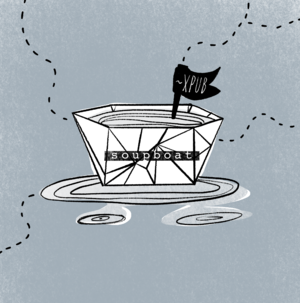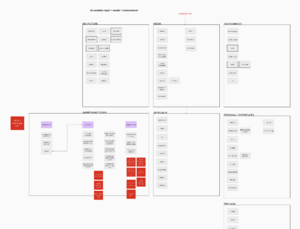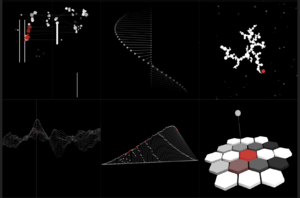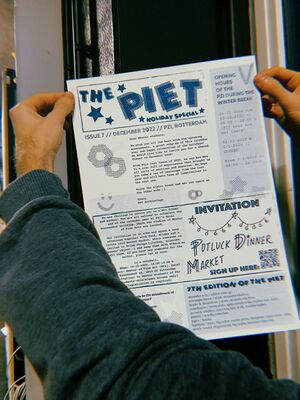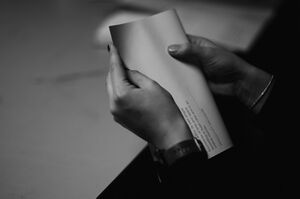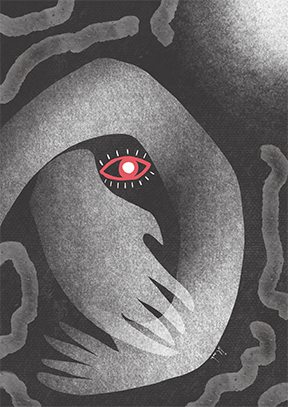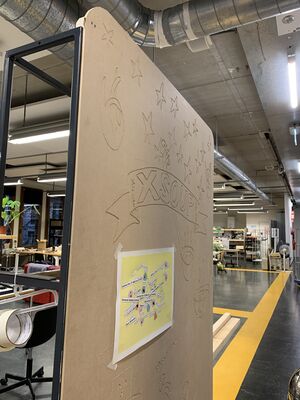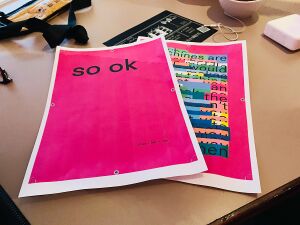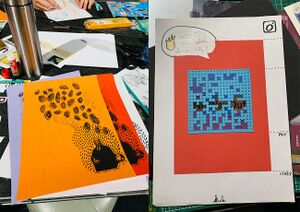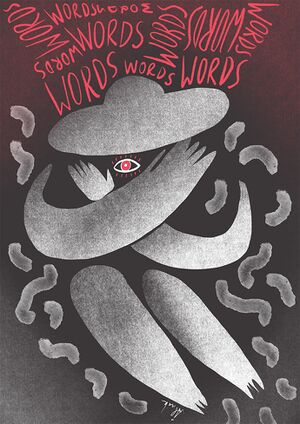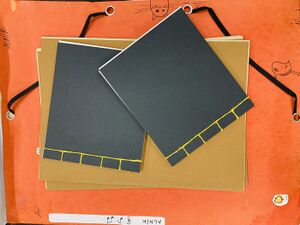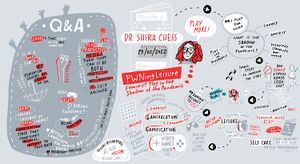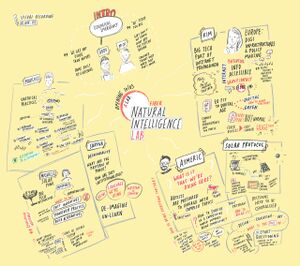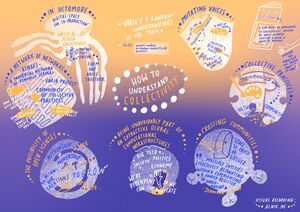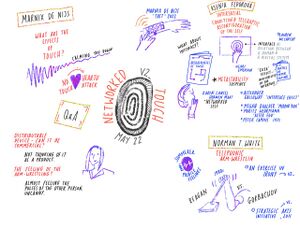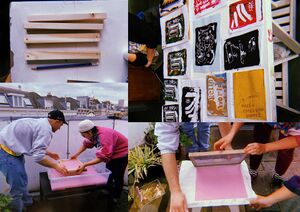User:Ålnik: Difference between revisions
| Line 132: | Line 132: | ||
===<span style="color: white; font-family: Menlo; text-decoration:none; background-color: #0033ff; padding-top: 0.1vw; padding-bottom: 0.1vw; padding-left: 0.1vw; padding-right: 0.2vw;">4_ Project</span>=== | ===<span style="color: white; font-family: Menlo; text-decoration:none; background-color: #0033ff; padding-top: 0.1vw; padding-bottom: 0.1vw; padding-left: 0.1vw; padding-right: 0.2vw;">4_ Project</span>=== | ||
My grad project is to create a publication presenting a method of producing collective sound-based publications. This hands-on guide will explore an applied method of inclusive sound jams based by inviting people to participate in a collective sound-making and publishing process. | |||
The project focuses on bringing deeper attention to sound in the ways we perceive it, and the ways we respond with it. In the project, I will explore various ways to facilitate sound-making and publishing moments on the basis of listening and responding. The method is based on the concept of deep listening, originally developed by musician and educator Pauline Oliveros. In her practice, Oliveros investigated new ways to focus attention on music including her concept of deep listening - ''a practice that is intended to heighten and expand consciousness of sound in as many dimensions of awareness and attentional dynamics as humanly possible''. | |||
Follow the process of developing the handbook at its own wikipage: | |||
▶ [[Sound Jams: Handbook]] | |||
===<span style="color: white; font-family: Menlo; text-decoration:none; background-color: #0033ff; padding-top: 0.1vw; padding-bottom: 0.1vw; padding-left: 0.1vw; padding-right: 0.2vw;">5_References/bibliography </span>=== | ===<span style="color: white; font-family: Menlo; text-decoration:none; background-color: #0033ff; padding-top: 0.1vw; padding-bottom: 0.1vw; padding-left: 0.1vw; padding-right: 0.2vw;">5_References/bibliography </span>=== | ||
Revision as of 12:23, 24 January 2023
Hello, world! ål nik here :)
About
Digitart, illustration, visual facilitation & scribing, graphic design. Looking for experimenting with tools, researching peculiar topics and finding focus before the end of XPUB2. ;]
XPUB1
Special Issue #16: Vernacular languages processing
▶▶ Visit my Special Issue 16 Work page
With our Special Issue 16 and prototyping classes, we aimed at combining programming with processing natural language. Thus, we started with Python (from scratch) and played with ways to process text. Each week we had to go through reads about Python and to learn to code step by step. At the same time, we also had reading sessions with Cristina and research, reading and writing with Steve. Here are the (mini)projects I worked on.
[highlighted work] ▶ Rotterdam impressions
Special Issue #17: Productive Play
▶▶ Visit my Special Issue 17 Work page
With our second issue and the seventeenth one for XPUB, we dived into the topic of "productive play", led by artist and researcher Lídia Pereira. During the reading sessions, we have elaborated on gamification, video games, monetisation mechanics and all of those's impacts on our work & personal life. In order to reflect on the topic, we formed reading groups and made discussions in class. Here are all of the (mini)projects I was part of during this special issue.
[highlighted work] ▶ Can Gaming Make A Better World? ▶ Connect[less] ▶ Editorial of the publication
Special Issue #18: Radio Implicancies
▶▶ Visit my Special Issue 18 Work page
Special issue 18 is about interconnections, sound and consequences. As a group, in pairs, or individually, we are creating recordings each week from 12 April until 25 June. My contributions and experiments week by week are available on Special Issue 18 Work.
[highlighted work] ▶ weekly contributions ▶ Release 05: Nested Narratives ▶ Intersection: our future is somewhere here
Reflection
In one word: fulfilling. In two words: practice enriching. But also mind-changing. Here is the highlighted work i would like to elaborate more on.
XPUB2
One sentence master project ideas.
0_ Research & prep
Preparations for XPUB2 that started during my first year:
In order to help myself learn how to document (better) and how to do a (proper) research, I joined Harma Staal's workshop at the Research Station: Tagging Topics (20/03/2022). She offered a way to do research using tagging and thinking of topics in tags. The purpose is to narrow down the content - from chaos to focus.
With this approach, the researchers are invited to connect their work and interests with other makers. (maker is now my new favourite word) As artists, we want to speak about perspectives, opinions, notions. Not truths.
Research is not about reading books. It starts with your making. Then, document it, reflect on it, talk about it. Share your knowledge and make new knowledge. When you talk about things you found out, makes them relevant.
Share that with image and text.
Discover my interests and map them
I started with quite broad topics and put them on the board. The next steps was to sort them out and put into groups. Whilst doing that, I identified three main groups of tags that once combined, can create a single project.
main tags to connect:
[topics]
[media/medium]
[environment]
additional ones:
[approach]
[personal experiences]
[feelings]
[Homework] to elaborate on 2-3 topics
In order to do that, I made this Mural board.
[For XPUB2] to identify which topics are interesting for me to research more (and get happily lost into the Rabbit Hole)
Summer Experiments
Following the format of Special Issue #18, I would like to challenge myself to continue with 1 or 2-weekly small experiments (contributions) on my own (or in collaborations) in order to test some quick master project ideas. The idea is to pick a topic of my interest, a read and do a small experiment in the mood of Radio Implicancies. To create an extended gallery over the Summer that might help me find my project of XPUB2. [fingers crossed, hehe]
[concept] mix [topic] + [format] = summarise in a tiny [zine]
▶ summer experiments pad
▶ Summer Experiments wiki
1_ Proposal work
XPUB2 is about creating a balance between making and writing. In order to find out what my master project will be about, i am both following the process, facilitated by the XPUB tutors, and researching tools, methods and topics i am personally interested in. Here are some tools proposed during sessions; and some research and exercises i've been doing on my own:
_interview // activity by Graduate Seminar // 22-sep-2022
▶ interviews with Mitsa [xpub] & Veere [lb] pad
▶ interview highlights
highlights from last year: documentation [wiki love], sound publication, diffractive live mixing, facilitation of sound publication as a method; issue: overwhelmed by possibilities; things i'd like to mix: performing; sound installation; sound publication; illustration; zines; mapping; collective experiences; orchestra jamming; documentation of the project questioning: what should be the topic of the research? or should there be no topic, but method/format experiments? note to self: include being the coordinator of Room for sound in the project.
_hackpact // activity by Graduate Seminar // ongoing
_ideas // personal research & exercises // ongoing
brainwriting and researching some initial ideas on what my master project could be about:
▶ [format as a focus] audiozines
▶ [format as a focus] sound - collecting references with Mitsa
_proposal drafting - first try
▶ [pad here]
▶▶ Al's XPUB2 proposal draft
_research with Mitsa
Our research has started with the facilitation of sound jams and it explores various directions simultaneously. The sound jams are part of the process of creating a collective sound publication. Each jam reflects on a particular topic and explores participants' reactions to it through sound-making. The jams in our understanding are moments of listening and responding, open to people with or without musical training.
2_ Prototyping
our prototyping classes during XPUB2 are divided in three main categories: M&Ms are mornings when members of the group are facilitating a session to share their research and get feedback; individual tutorials for feedback and additional help by Manetta & Joseph; and focus groups - small groups research and exercises of topics/methods of interest. My documentations on a weekly basis comes here:
▶▶ Weekly: XPUB2 prototyping - Ål Nik documentation
personal prototyping interests:
_pure data for music instruments // learning from sratch _wikimedia for practice documentation // setting up on my server _hosting my own mailing list // no more mailchimp!
3_ Thesis
▶▶ Al's XPUB2 thesis outline
The thesis outline was finalised and submitted on 18-11-2022.
▶▶ Al's XPUB2 thesis
WIP
4_ Project
My grad project is to create a publication presenting a method of producing collective sound-based publications. This hands-on guide will explore an applied method of inclusive sound jams based by inviting people to participate in a collective sound-making and publishing process.
The project focuses on bringing deeper attention to sound in the ways we perceive it, and the ways we respond with it. In the project, I will explore various ways to facilitate sound-making and publishing moments on the basis of listening and responding. The method is based on the concept of deep listening, originally developed by musician and educator Pauline Oliveros. In her practice, Oliveros investigated new ways to focus attention on music including her concept of deep listening - a practice that is intended to heighten and expand consciousness of sound in as many dimensions of awareness and attentional dynamics as humanly possible.
Follow the process of developing the handbook at its own wikipage: ▶ Sound Jams: Handbook
5_References/bibliography
WIP - what informs the research
reads
Cardew C. (ed.), 1969. Nature Study Notes. Scratch Orchestra, Experimental Music Catalogue.
Oliveros, P., 2005. Deep Listening. New York. Deep Listening Publications. [annotated pad]
adrienne maree brown, 2019. Pleasure Activism. The Politics of Feeling Good. Chico, Edinburgh. AK Press. [annotated pad]
Evens, A., 2005. Sound Ideas: Music, Machines & Experience. U of Minnesota Press [annotated pad]
Kreidler, J. 2013. loadbang. Programming Electronic Music in Pure Data. 2nd edition. Hofheim: Wolke Verlag.
Munck, M. de., Gielen, P., 2020. Nearness: Art and Education After Covid-19. Amsterdam. Valiz. [annotated pad]
Weiss, A., 2001. Experimental Sound & Radio. The MIT Press.
Groot, M. 2019. The Amateur's Armour. [online] Available at: <https://underbelly.nu/wp-content/uploads/2015/04/The-Amateurs-Armour.pdf> [Accessed 11 October 2022].
sound publications
Brown, A. R., 2022. Beneath Maiwar.[online] Available at: <https://www.explodingart.com/arb/2022/06/28/beneath-maiwar/> [Accessed 30 September 2022]. [annotated pad]
Nagy, A., 2018. Hackpact / Sonification Studies. [online] Available at: <https://stc.github.io/HackPact/> [Accessed 30 September 2022]. [annotated pad]
XPUB3 :-)
gr *・。゚. erica .*・。゚gr and I started exploring options for creating a follow-up project after we graduate. We are interested in exploring the opportunities for us to continue our collective work, look for funds and stay for a while in Rotterdam. Our research started with exploring the funds in Netherlands (and Europe).
WIP places:
▶ draft pad of funds research
▶ Funds for artists wiki page
▶ project development process - coming soon
PZI Archipelago
I joined the team of PZI Archipelago in June 2022. My main motivation was to continue the publishing of the regular master students newspaper the Piet and to support the team in organising workshops and shared moments. As part of my work there, I support the process of publishing the Piet (getting contributions, design, illustration, printing, folding, distributing). We work on the Piet together with Emma. I also organise the schedule of workshops facilitated by us. Documenting some of the events, supporting the Open Days at PZI, and doing some graphic design, illustrations etc. are also things I do at the Archipelago. Here are a few highlights of my work there:
The Piet
The Piet // Issue 7 // december 2022
_december 2022 // edition units 250 newspaper layout // al nik (alexandra nikolova) header & illustrations // al nik (alexandra nikolova) contributors // emma prato, agata sznurkowska, stephen kerr, kamo, gersande schellinx, chaeyoung kim, al nik, zoraïma hupkes printed // at wdka rotterdam paper // kasaka typefaces // panic, big caslon, courier prime, phosphate, cutive mono, cabin sketch, oswald, eb garamond, big caslon, american typewriter
Workshops
Documentation
2022-11-22 // build your own tools by Emma // photographing the workshop
▶ photos of the workshop
Station Skills
WdKA's Station Skills: Most of the station skills I joined during my second trimester were related to writing. The reason is that I feel quite insecure in my writing and have been criticised before for bad writing. Thus, I am trying to improve my writing in English, which I still find challenging because it is not my native language, nor alphabet.
RE:Writing
17 November 2021 This workshop was the first station skill I attended because I was stressed at the beginning of XPUB and wanted to make sure I can manage everything. I went to the RE:Writing because I wanted to listen to some random stories, get outside the special issue thoughts and illustrate something. Whilst listening to the short stories and poems, I illustrated one of them: It All Started by Kristiāna N.
Tagging Topics
20 January 2022 In order to help myself learn how to document (better) and how to do (proper) research, I joined Harma Staal's workshop at the Research Station: Tagging Topics. She offered a way to do research using tagging and thinking of topics in tags. The purpose is to narrow down the content - from chaos to focus.
With this approach, the researchers are invited to connect their work and interests with other makers. (maker is now my new favourite word) As artists, we want to speak about perspectives, opinions, and notions. Not truths. Research is not about reading books. It starts with your making. Then, document it, reflect on it, and talk about it. Share your knowledge and make new knowledge. When you talk about things you found out, make them relevant. Share that with image and text.
Wood Workshop
21 January 2022 Together with Chae, Kamo and Erica, we visited the wood workshop in order to make a wooden board. We imagined it to be a place to harvest ideas, hang stuff and move around the studio on wheels. For the first time I cut such a big wooden surface on the big cutting machine. After that, with the small cutting machine I curved one of the 4 corners. Nice collective moment indeed.
Crash Course in Typography
24-26-28 January 2022 The typography class by Britt Möricke took place at the Publication Station. We had three classes within a week to go through the basics of typography and to learn the rules (so we can break them, hehe). We dived into the history of typography, the theoretical rules and did several practical exercises on Adobe InDesign. I did not work with that programme that much before, so it was quite useful for me; and also to get to know a bit better some basic rules on compiling long body text. We also did some fun exercises on typo-posters.
My handwriting sucks! Now what?
3 February 2022 Another workshop by Britt Möricke who presented to us a handwriting handbook she had developed. We did exercises to train cursive writing.
Writing as reflection, writing as practice. Experimental Research Documents workshop
24 February 2022
"Writing as a form of thinking. Writing as a manifestation of thoughts. Writing as a struggle. Write as a chore. Writing as practice. There are so many ways of thinking about writing and so many different forms of writing."
In that workshop by Michelle Teran we did various short writing activities such as writing a letter to our recent project. We experimented with ways of thinking about the role of writing in our research projects. The second part of the session was more focused on examples (in a form of a presentation).
Workshops & Labs
Speech To Booklet [Roodkapjie Rotterdam, 07 October 2021] by Kamo & Poni
Zine Camp [WORM Rotterdam, 06-07 November 2021]
Wordmord Presentation & Q&A [23 November 2021]
Bookbinding Workshop [Gerrit Rietveld Academy Amsterdam, 27 November 2021] by Gersande
Public Lecture by Shira Chess [23 February 2022] online
FIBER Lab: Natural Intelligence [A:Lab Amsterdam, 10-13 March 2022]
Networked Touch [V2_ Rotterdam, 22 May 2022]
Ultra Studio [BB Gerrit Rietveld Academie & R A T S Rotterdam, 05 October 2022]
Remnants of Future Voices [by Jonathan Chaim Reus in collaboration with Angeliki Diakrousi // Varia, Rotterdam // 10 december 2022]
▶ pad with my annotations & work
[contribution]
Conversation piece from the future past Mitsa's and Alex's clones are talking Mitsa's clone is in the future Alex's clone is in the past They are having a quick chat Somewhere and sometime in the future

